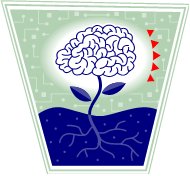The Science
Maximizing a child’s opportunity to learn and succeed academically requires confronting at least two types of challenges. First, one must determine which strategies best foster learning. Second, one must determine how best to motivate students to take advantage of those strategies. For example, a teacher might teach her class about important self-regulated strategies such as spacing one’s study or monitoring one’s level of understanding through self-quizzing. However, not all students are likely to adopt these strategies. We argue that students’ willingness to adopt learning strategies and, in turn, their learning outcomes depend, in part, on their beliefs about whether they can improve their level of intelligence.
Students differ in the degree to which they view intelligence as fixed and stable (an entity view) or as able to be improved and change over time (an incremental view). This difference leads to a host of cognitive and behavioral responses in learning environments (e.g., Dweck, 1999; 2006). For example, incremental theorists believe that it is possible to grow smarter with effort and, consequently view effort in positive ways. In contrast, entity theorists believe that no amount of effort can lead to improved intelligence and, further, view expenditure of effort as evidence that a person lacks sufficient intelligence to perform a task with ease (Blackwell, Trzesniewski, & Dweck, 2007). Previous research also suggests that students’ theories of intelligence also have an important impact on student outcomes in both laboratory (Mangels, Butterfield, Lamb, Good, & Dweck, 2006) and field studies (e.g., Blackwell et al, 2007).
Thus, teaching students an incremental view of intelligence might be an effective means of improving student outcomes. However, little is known about the specific mediating and moderating factors underlying the benefits of incremental beliefs for learning. This project asks whether an incremental view of intelligence leads students to more often adopt and use self-regulated strategies for learning and, as a result, improves student outcomes, relative to an entity view. The GLEAM project will explore how intelligence theories influence students’ use of two specific self-regulated learning strategies— metacognitive strategies and spacing one’s study.
